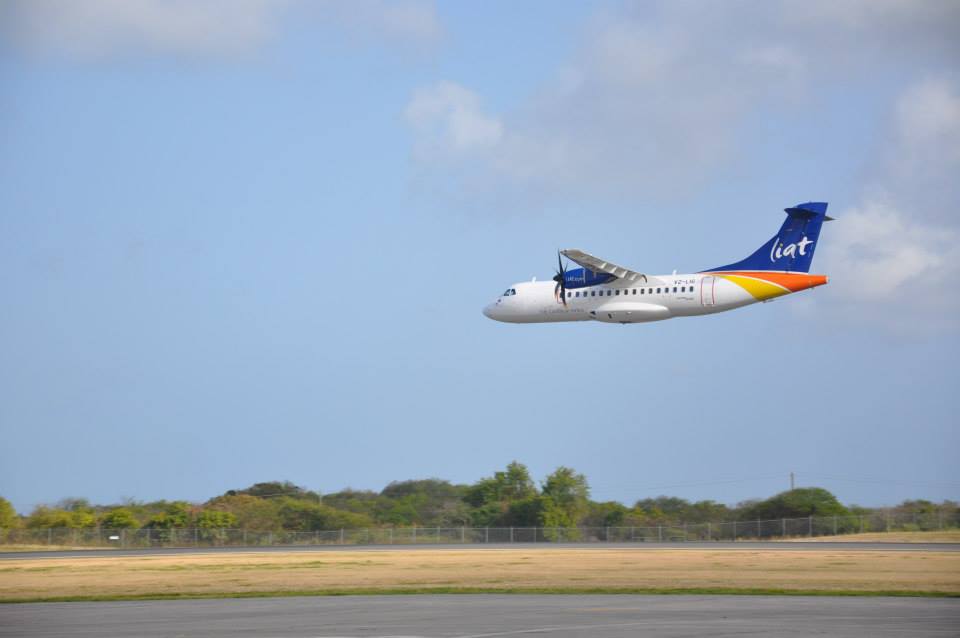This is the Biggest Question Facing Caribbean Air Transport
What kind of regional air transport system does the Caribbean want?
By Kareem Yarde
Op-Ed Contributor
It was proclaimed that the 2015 restructuring plan of regional carrier LIAT — announced by the major shareholding governments (Barbados, St. Vincent and the Grenadines, Antigua and Barbuda, and Dominica) — was to keep the carrier from collapsing and to make it financially viable.
Part and parcel of the plan was to base four of the aircraft in Barbados on the premise that the southern sectors of the carrier’s route network account for many of the carrier’s most profitable segments.
Shortly after this announcement, the Prime Minister of Antigua then wrote the other shareholding governments requesting deference of the plan on the basis that it would result in substantial job losses and have a negative economic impact on Antigua.
Soon after this revelation, St Vincent and the Grenadines Prime Minister Ralph Gonsalves, the chairman of the shareholding governments declared at a news conference “the decision was taken unanimously with all the shareholder governments present, that is to say Barbados, Dominica, St Vincent and the Grenadines and Antigua and Barbuda”.
Subsequently, the Prime Minister of Antigua was then reported to have declared that the move would no longer occur and indicated that Antigua had injected US$400,000 in the carrier as part of $10 million that his country had promised to deliver to the airline by year end.
Draw what you will from this investment and proposed reconsideration of the aircraft redployments.
What is absolutely clear though is that the politics in the eastern Caribbean air transport industry are glaring but, to be quite frank, somewhat understandable.
The shareholding governments have to find politically correct ways to justify supporting a carrier which has had a long history of suffering financially.
One also accepts that the carrier (LIAT) does face a difficult market to operate in because of the small populations and even restrictive travel propensity in some of the markets.
Now, one expects that management at LIAT recognizes and accepts some of the very justified and constructive criticism which is leveled at the carrier.
LIAT, however, faces some degree of injustice, which, I think, represents a question we must address in the CARICOM intra-regional air transport environment. Just like the situation discussed above, both the carrier and the public are often presented with many mixed messages regarding regional air transport development.
There are constant claims that the carrier (LIAT) is unprofitable and inefficient, yet when it attempts to make strides at profitability it is beseeched by some shareholders to maintain access.
When the carrier attempts to reduce its cost base it is portrayed as a national relic and economic hinge pin. It is time we really ask ourselves what type of air transport environment we wish to develop because our existing system has run its course.
Almost every nation in CARICOM now has an international airport — many of which have very low utilization rates and hence will incur substantial user fees.
Our regional carrier currently operates on the basis of a very complex route network requiring air transport banks (aircraft arriving and departing at hubs at particular times to allow passengers to change flights) of immaculate precision coordination.
There is a private sector in the region which proclaims to have- and in fact has very much shown an interest in developing regional carriers- even if not only commuter carriers.
There is a constant claim by proponents of the status quo that the CARICOM market is not large enough to support substantial amounts of capacity.
Indeed however there is also clear evidence to suggest that when competition exists in the region demand rises.
A critical and fair analysis will also recognize the justifiable claim that there have been instances in the region where increases in demand resulting from competition led to price wars between carriers (like Caribbean Start and LIAT; and arguably to some extent even LIAT and Redjet). All of these issues are legitimate concerns requiring critical discussion.
However, the truth is, air transport in our region seems to develop on a piecemeal and insular basis and this is not for want of air transport studies or action committees or even expertise.
The chronology of events initially outlined herein is the latest testimony to that.
There are often instances of substantial political back and forth, protectionism, discord and mixed messages. Claims of profitability pursuits and then claims and endorsements of perpetual subsidization.
In light of all of this ambiguity and discord, then, there is a very clear-cut question before us.
Do we wish for an intra-regional air transport environment where unequivocal, structured and across the board subsidization drives demand because the market is “so small”, or one where individual route specific subsidisation schemes (for eg. public service obligations), efficiency, and competition drive demand?
This is meant to be a genuine option because the status quo is very disheartening.
Our discord and insular approaches currently befuddles the above options with the hope that we will eventually produce a mélange that works.
On the one hand, our regional political directorates fuel the inefficiencies and protectionism and argue for the necessity of subsidies, and some nations offer subsidies which supports service to non-subsidizing nations. On the other hand, everyone then chastises the regional carriers as drains on the various treasuries.
At the end of it all, management and staff of the carriers become confused, the politicians become confused, the private competition becomes confused and frustrated, the consumers become confused and hopeless, and the region is left with high fares, inefficiencies and nations with citizens in an integration movement who can’t even visit each other affordably and efficiently.
Now I would never profess that air transport is any quick-fix issue.
But I honestly cannot see how we can be doing ourselves any favors by these approaches.
Either we take the route of genuine and fair intraregional subsidization if we do not have enough faith in the size of the market or we allow specific subsidization, efficiency and competition to take root, but how can we justly bash the carriers for being unprofitable and at the same time beseech them to provide unfettered social services and be pillars of national economies?
It is not fair to them, it is not fair to the private carriers as competition as it gives them no certainty in the business environment and it is not fair to us all as sons and daughters tasked with uniting and advancing our region. So, which side of this fence are you on?
Kareem Yarde is the Founder and Creative Strategist of Tourism Analytical Services. He can be reached at kareemyarde@gmail.com.







